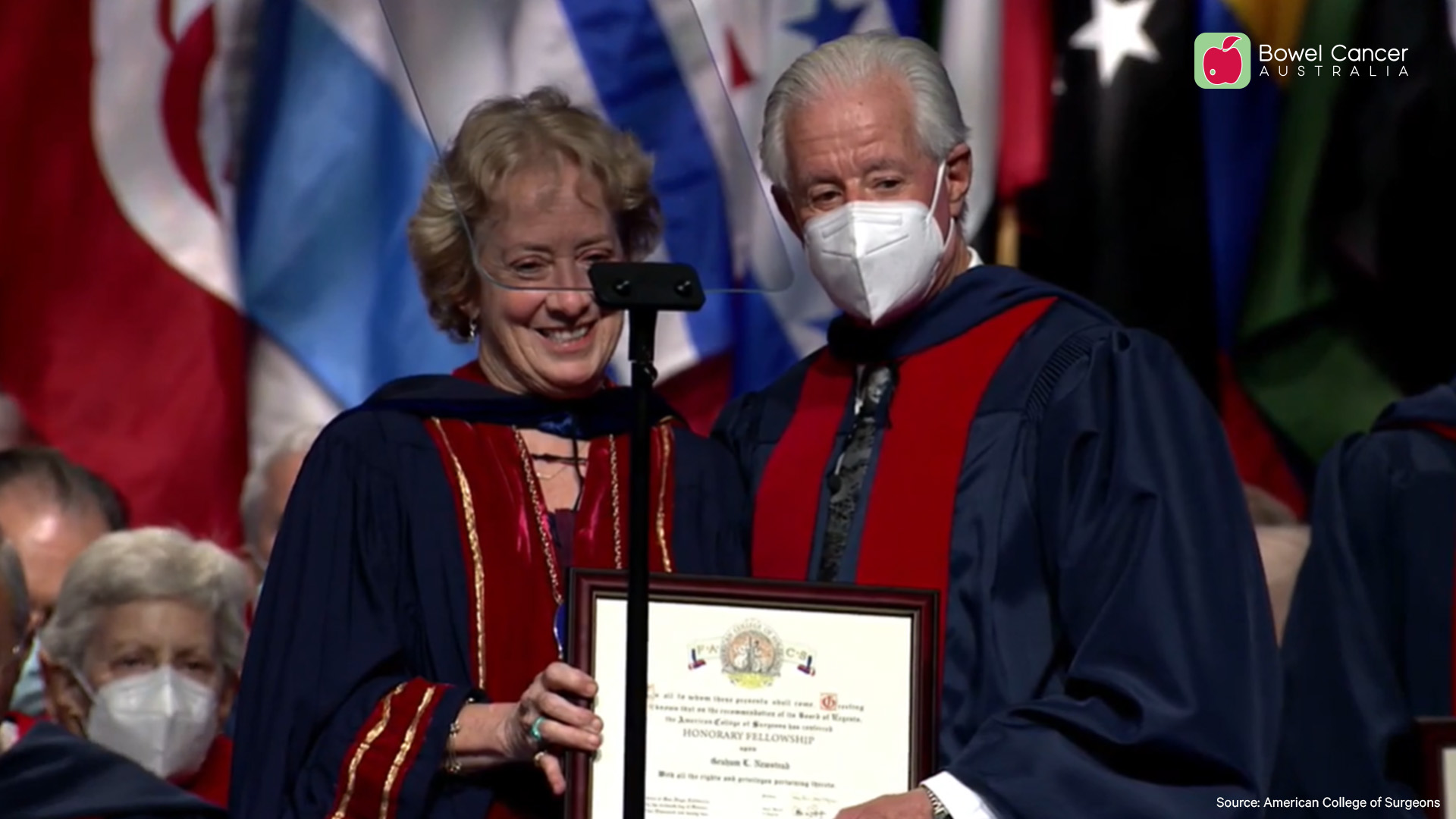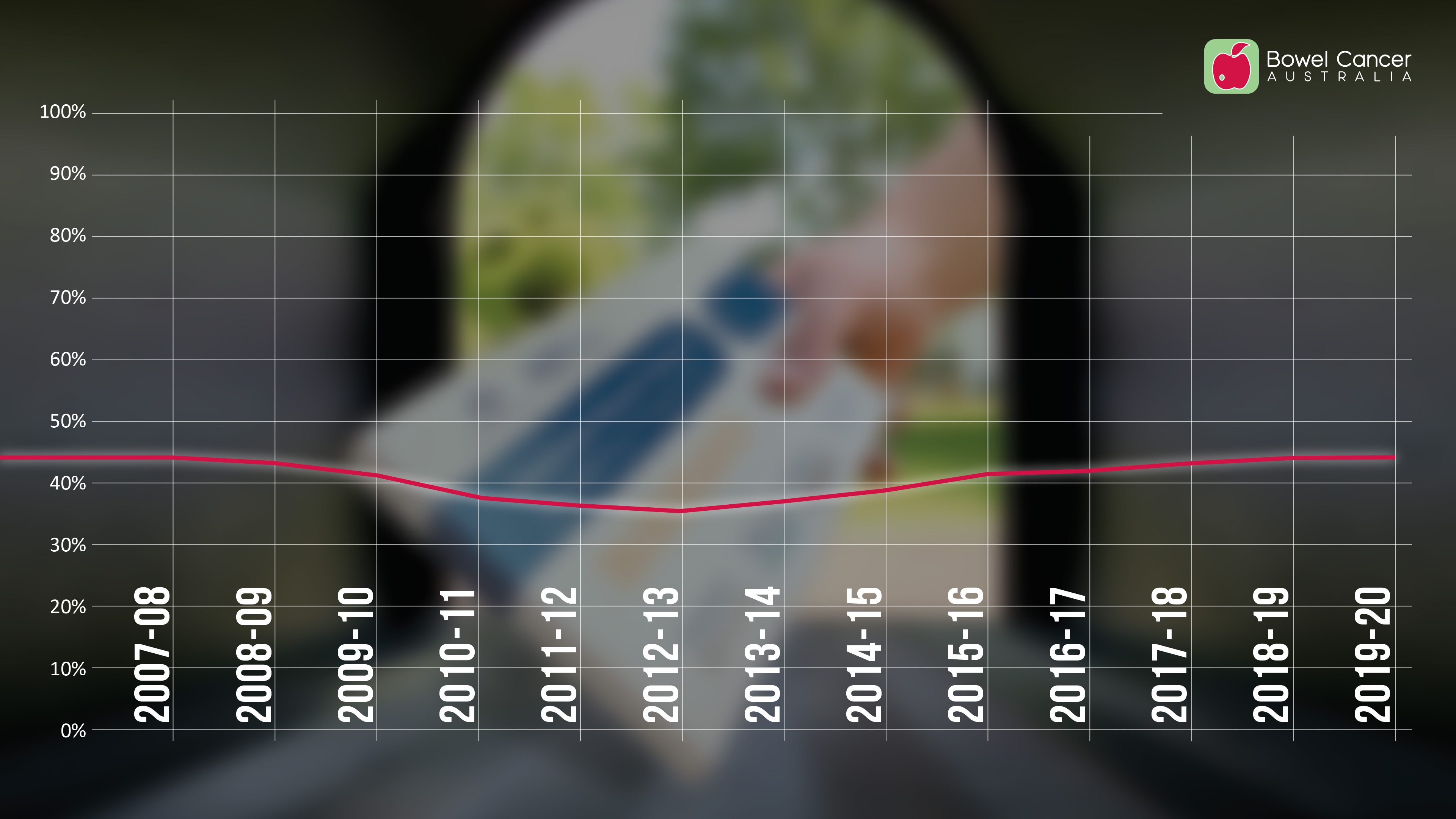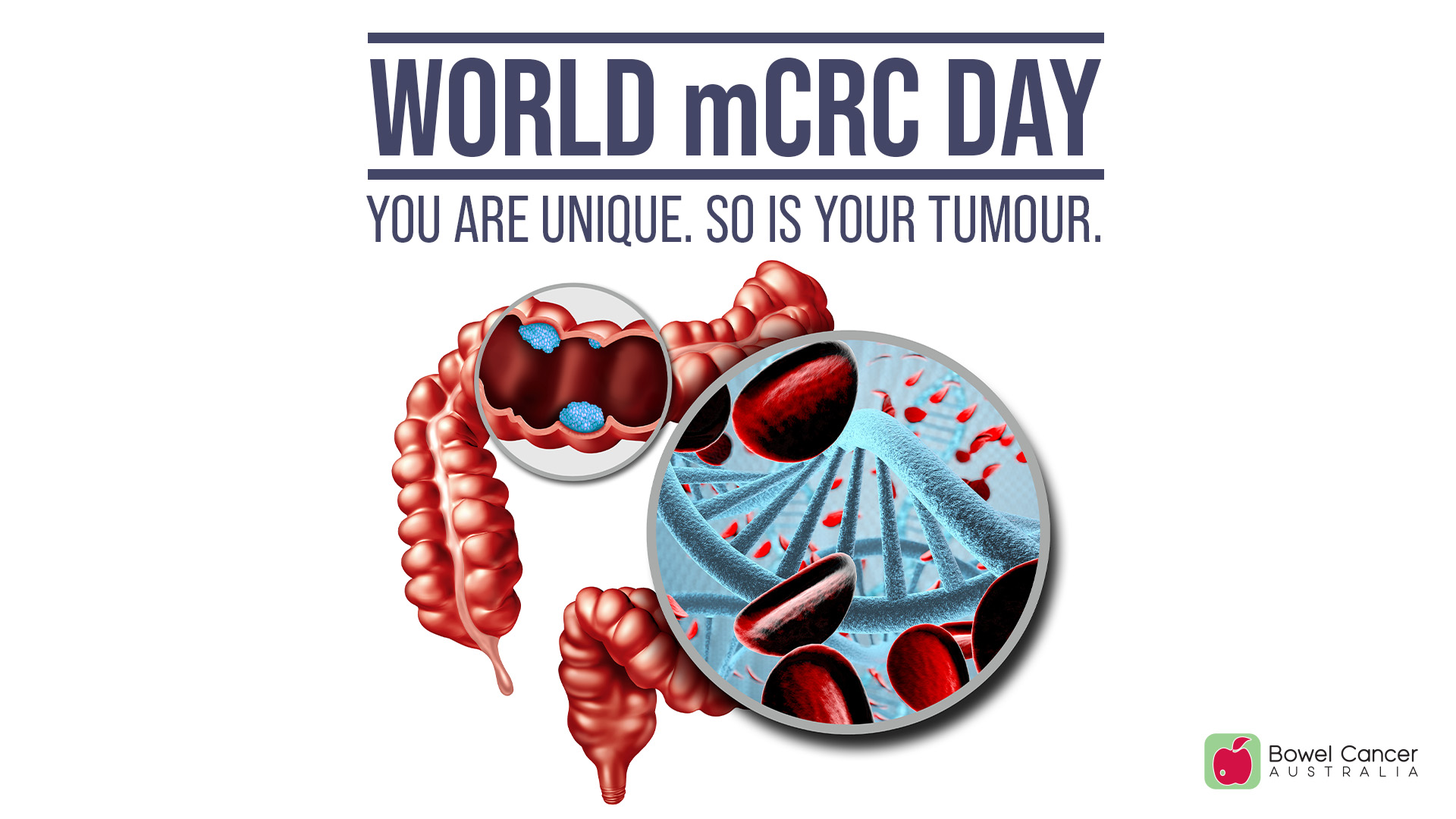Media centre

Bowel Cancer Australia Medical Director and recently retired colorectal surgeon, A/Prof Graham Newstead AM was recently made an Honorary Fellow of the American College of Surgeons (ACS).
The award was accompanied by the citation: “The American College of Surgeons pays tribute to your outstanding achievements in surgery, your international reputation, and your distinguished humanitarian services”.
- Details
The latest AIHW National Bowel Cancer Screening Program (NBCSP) Report (2019-2020) reveals participation rates continue to remain static at 43.8% (2018-19: 43.5%) and colonoscopy wait times for those who receive a positive screen continue to exceed the recommended 30 days.
According to the report, 5.76 million people aged 50-74 were invited to participate in the NBCSP in 2019-20 and 2.52 million tests were returned.
According to the report, 5.76 million people aged 50-74 were invited to participate in the NBCSP in 2019-20 and 2.52 million tests were returned.
- Details
Biomarker testing identifies the unique mutations in your tumour, helping your medical team develop a treatment plan that is tailored to you, more efficient, and less likely to provide unnecessary side effects.
Dying tumour cells release small pieces of their DNA into the bloodstream. These pieces are called circulating tumour DNA (ctDNA).
- Details
Anal cancer is considered a rare disease, with 514 people diagnosed and 129 deaths each year in Australia.
The anus (back passage) is the 4 cm long end portion of the large bowel, which opens to allow poo to exit the body. The anus is formed partly from the outer skin layers of the body and partly from the intestine. Two ring-like muscles, called sphincter muscles, open and close the anal opening and let poo pass out of the body.
- Details
Bowel cancer is the third most common cancer in Australia.
Around 69% of bowel cancers are located in the colon and 31% in the rectum.
Each year there are 4,919 new rectal cancer cases and 2,815 rectal cancer deaths.
- Details
Bowel Cancer Australia recommends participating in screening appropriate to your personal level of risk.
The decision to be screened for people over the age of 75 should be based on an individual’s preferences, life expectancy, overall health, and prior screening history.
People aged 75 and over are not eligible to participate in the National Bowel Cancer Screening Program (NBCSP).
- Details
Bowel cancer is significantly impacting younger people with 1-in10 new cases in Australia now occurring in people under age 50.
New Australian and international research reveals bowel cancer rates in under 50s has increased considerably over the past three decades.
Alarmingly, over the next 10 years worldwide, it is estimated that 25% of rectal cancers and 10-12% of colon cancers will be diagnosed in people under age 50.
- Details
Bowel Cancer Australia today launched a bold new awareness campaign, voiced by internationally acclaimed actress, Miriam Margolyes, for Bowel Cancer Awareness Month 2022.
The new advertising campaign, Home to one of Australia’s most preventable cancers, features a computer-generated female model to create a high-impact commercial that focuses on polyps growing inside a ‘talking bowel’.
Ms Margolyes was enthusiastic in providing the ‘talking bowel’ with its own unique personality.
- Details
Help us to challenge perceptions and create a powerful voice for change by sharing our Never2Young Advocacy Agenda with your family, friends and networks.
Sign up to be a #N2Y Champion and share your lived-experience this June.
Download one of our dedicated Never2Young Advocacy Agenda social media placards and photograph yourself (and/or your loved ones) holding up the message.
- Details














